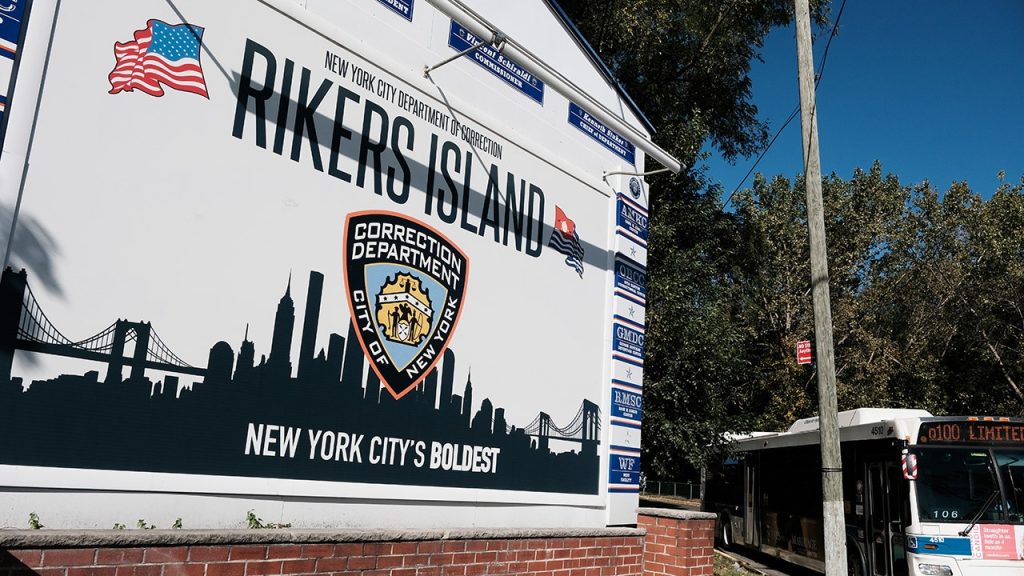In a landmark ruling, a federal judge in New York has taken control of the Rikers Island jail complex due to persistent unsafe conditions for inmates. Judge Laura Taylor Swain mandated that an independent officer oversee the facility, underlining the inadequacies of the city’s correctional operations. The decision stems from a long-standing federal lawsuit aimed at reforming the city’s jail system, which affects around 7,000 inmates, emphasizing the systemic failures that have persisted for years despite court interventions.
| Article Subheadings |
|---|
| 1) The Ruling and Its Implications |
| 2) Historical Context: Nunez v. City of New York |
| 3) Oversight by the Nunez Remediation Manager |
| 4) Reaction from City Officials |
| 5) The Path Forward: Reform and Challenges |
The Ruling and Its Implications
The recent decision made by Judge Laura Taylor Swain to seize control of the Rikers Island jail complex constitutes a significant judicial intervention aimed at rectifying major deficiencies in the management of New York City’s jails. The ruling allows an independent officer to take the reins of operations, addressing systemic issues that have led to unconstitutionally dangerous conditions for inmates. The judge’s detailed 77-page order clarifies the legal justification for this unusual step, which heretofore had been considered rare. The implications of this ruling resonate throughout the city’s entire correctional system, marking a shift towards federal oversight.
Historical Context: Nunez v. City of New York
To understand the current state of affairs, one must consider the historical backdrop of Nunez v. City of New York. This legal case has been central to discussions about prison reforms in New York City since its inception in 2011. The lawsuit was initiated by inmates who alleged that they were subjected to excessive and unreasonable force by jail staff. Following extensive negotiations, a settlement known as the Nunez Consent Judgment was established in 2015, mandating a comprehensive plan for reforms designed to decrease violence and enhance oversight within the jail system. Even after several years, reports indicated that compliance with these court-mandated reforms was alarmingly insufficient, prompting Judge Swain’s decisive ruling.
Oversight by the Nunez Remediation Manager
The newly appointed Nunez Remediation Manager is tasked with overseeing the implementation of necessary reforms within the jail system under the jurisdiction of the federal court. This manager will possess extensive powers comparable to those of a receiver, with the authority to modify departmental policies governing crucial aspects such as the use of force, staffing levels, and inmate security. The implications of this role are profound, as it signifies a shift away from municipal control, forced by the city’s failure to rectify longstanding issues. The ongoing issues at Rikers Island not only threaten inmate safety but also undermine public trust in the correctional system.
Reaction from City Officials
In the wake of this ruling, reactions from city officials have been mixed, with Mayor Eric Adams expressing opposition to federal takeover but pledging compliance with the judge’s directive. At a recent press briefing, Adams emphasized the necessity to abide by the federal court’s decisions, stating,
“If the federal judge made a determination that they want to do something else… we’re going to follow the rules.”
Despite prior intentions to reform Rikers through planned closures and new facilities, the challenges ahead are daunting. The former mayor’s initiative to replace Rikers with four smaller facilities has encountered substantial delays, complicating any rapid advancements in jail conditions.
The Path Forward: Reform and Challenges
Looking towards the future, reforming the correctional system at Rikers poses substantial challenges involving political, structural, and operational dynamics. The appointed Nunez Remediation Manager’s effectiveness in implementing changes will be closely scrutinized, particularly given the decades-long history of issues plaguing the facility. City officials may need to grapple with both immediate and long-term strategies to improve conditions, including the potential for increased funding and staffing. It will be critical for the federal oversight to engage with community organizations and advocacy groups to achieve meaningful transformation that ensures inmate safety and rehabilitation.
| No. | Key Points |
|---|---|
| 1 | Federal Judge Laura Taylor Swain seized control of Rikers Island due to serious safety concerns. |
| 2 | The ruling requires the establishment of an independent oversight position reporting to the court. |
| 3 | The ruling stems from the Nunez v. City of New York lawsuit, which sought reforms for excessive force in city jails. |
| 4 | Mayor Eric Adams opposed federal oversight but committed to compliance with the ruling. |
| 5 | Significant challenges remain for implementation of reforms, including operational and political dynamics. |
Summary
The recent judicial ruling to place Rikers Island under federal oversight marks a significant shift in the management of New York City’s correctional system. With the appointment of an independent manager tasked with enforcing necessary reforms, the ruling aims to address longstanding safety issues and uphold the constitutional rights of inmates. However, the challenges ahead—including political resistance and operational limitations—must be navigated carefully to ensure the safety and dignity of those incarcerated.
Frequently Asked Questions
Question: What are the main concerns about Rikers Island?
Main concerns about Rikers Island revolve around the unsafe conditions that have been reported, including violence, inmate abuse, and systemic dysfunction that jeopardizes the safety of both inmates and staff.
Question: What triggered the federal ruling?
The federal ruling was triggered by a series of failures from the New York City Department of Correction to implement court-mandated reforms stemming from the Nunez v. City of New York lawsuit that sought to reduce violence and enhance oversight in the jail system.
Question: How will the independent manager affect Rikers Island operations?
The independent manager will have the authority to modify departmental policies related to the use of force, staffing, and discipline, aiming to enforce compliance with long-overdue reforms and enhance overall conditions in Rikers Island.


